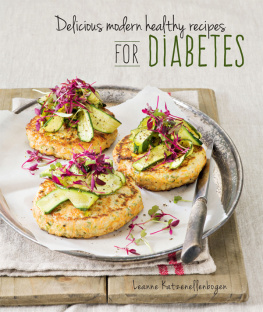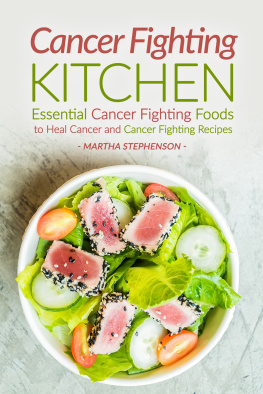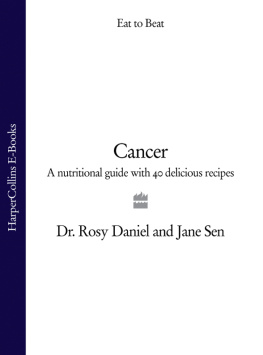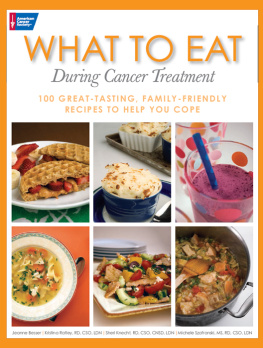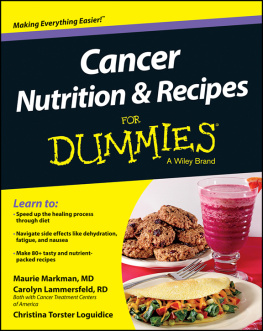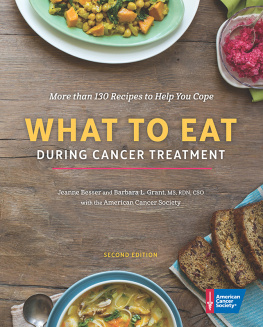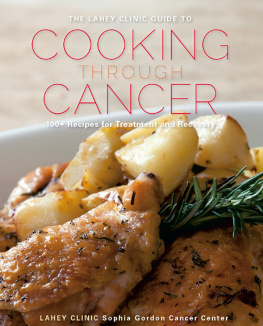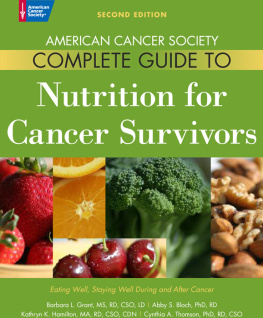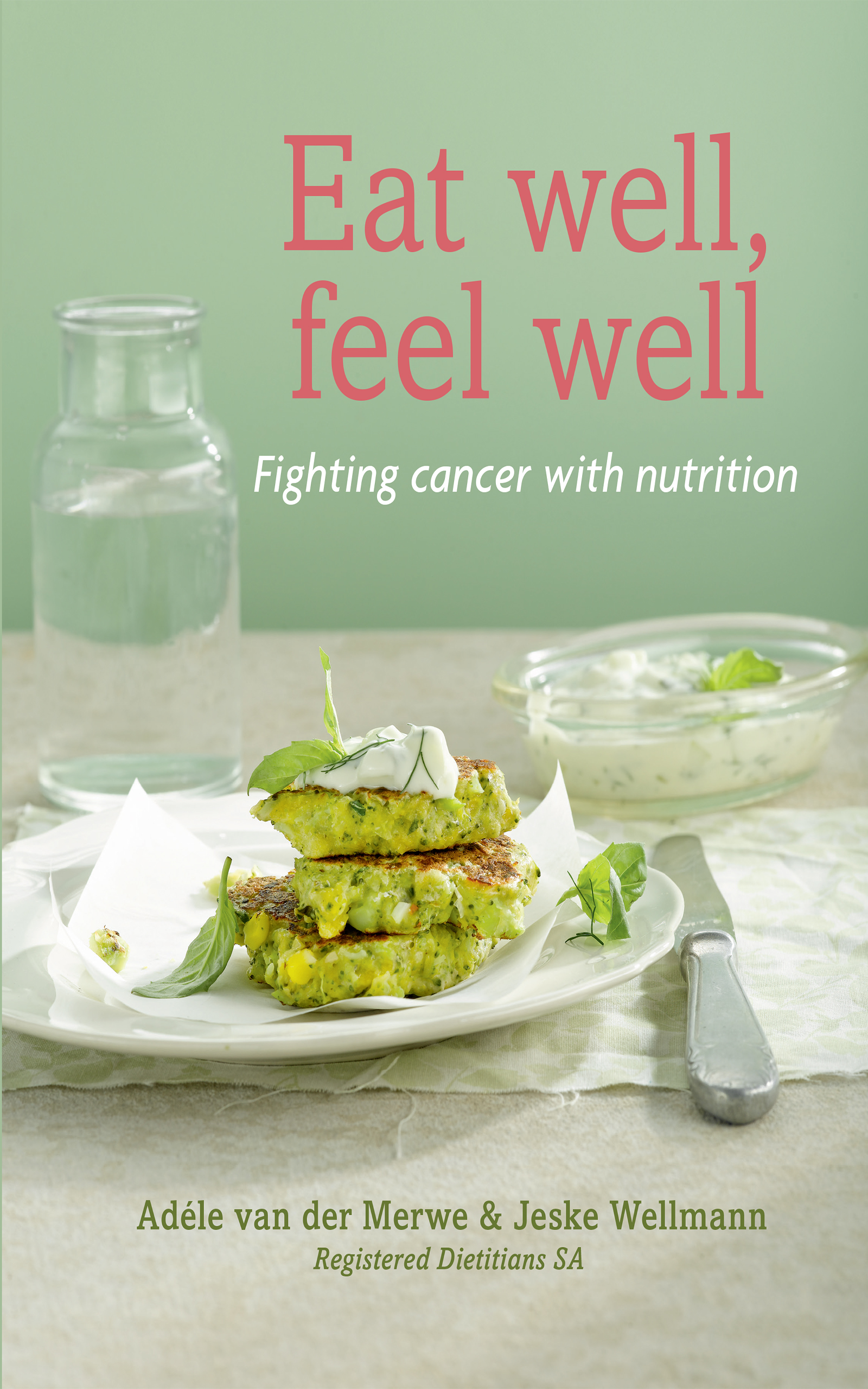REFERENCES
Bjelakovic, G., Nikolova, D., Gluud, L.L. et al. 2007 Mortality in Randomized Trials of Antioxidant Supplements for Primary and Secondary Prevention: A Systematic Review and Meta-analysis. Journal of the American Medical Association, 297: 842857.
Dewey, A., Baughan, C., Dean, T.P., Higgins, B., Johnson, I. 2007. Eicosapentaenoic Acid (EPA, an Omega-3 Fatty Acid from Fish Oils) for the Treatment of Cancer Cachexia. Cochrane Database of Systematic Reviews, Issue 1.
Fortmann, S.P., Burda, B.U., Senger, C.A. et al. Vitamin and Mineral Supplements in the Primary Prevention of Cardiovascular Disease and Cancer: An Updated Systematic Evidence Review for the U.S. Preventive Services Task Force. American College of Physicians. 17 December 2013.
Gaziano, J.M., Glynn, R.J., Christen, W.G. et al. 2009. Vitamins E and C in the Prevention of Prostate and Total Cancer in Men: The Physicians Health Study II Randomized Controlled Trial. Journal of the American Medical Association, 7 Jan, 301(1): 5262.
Genkinger, J.M. et al. 2014. Dairy Products and Pancreatic Cancer Risk: A Pooled Analysis of 14 Cohort Studies. Anticancer Research, Jan, 34(1): 921.
Han, X., Li, J., Brasky, T.M., Xun, P., Stevens, J., White, E., Gammon, M.D., He, K. 2012. Antioxidant Intake and Pancreatic Cancer Risk: The Vitamins and Lifestyle (VITAL) Study. HPB Surgery , 381328.
Hardman, E. 2002. Omega-3 Fatty Acids to Augment Cancer Therapy. Journal of Nutrition, 132: 3508S3512S.
Jamil, L.H., Chindris, A.M., Kanwar, R.S. et al. 2012. Glycemic Control after Total Pancreatectomy for Intraductal Papillary Mucinous Neoplasm: An Exploratory Study. HPB Surgery, 381328.
Kim, S.Y., Wie, G.A., Lee, W.J., Park, S.J. and Woo, S.M. 2013. Changes in Dietary Intake, Body Weight, Nutritional Status, and Metabolic Rate in a Pancreatic Cancer Patient. Strahlentherapie und Onkologie , Sep, 189(9): 745752.
Klein, E.A., Thompson Jr, I.M., Tangen, C.M. et al. 2011. Vitamin E and the Risk of Prostate Cancer: The Selenium and Vitamin E Cancer Prevention Trial (SELECT). Journal of the American Medical Association , 306(14): 15491556.
Klek, S., Szybinski, P. and Szczepanek, K. 2013. Perioperative Immunonutrition in Surgical Cancer Patients: A Summary of a Decade of Research. Clinical Nutrition Research, July, 2(2): 154158.
Kuhn, K.S., Muscaritoli, M., Wischmeyer, P., Stehle, P. 2010. Glutamine as Indispensable Nutrient in Oncology: Experimental and Clinical Evidence. European Journal of Nutrition, 49: 197210.
Kushi, L.H., Doyle, C., McCullough, M. et al. 2012. American Cancer Society Guidelines on Nutrition and Physical Activity for Cancer Prevention Reducing the Risk of Cancer With Healthy Food Choices and Physical Activity. A Cancer Journal for Clinicians, 62: 3067.
Naumann, P., Habermehl, D., Welzel, T., Debus, J., Combs, S.E. 2013. Outcome after Neoadjuvant Chemoradiation and Correlation with Nutritional Status in Patients with Locally Advanced Pancreatic Cancer. British Journal of Surgery, Jul, 100(8): 10641070.
Park, J.W., Jang, J.Y., Kim, E.J., Kang, M.J., Kwon, W., Chang, Y.R., Han, I.W., Kim, S.W. 2013. Effects of Pancreatectomy on Nutritional State, Pancreatic Function and Quality of Life. Cancer, Apr 1, 119(7): 13141320.
Pericleous, M., Rossi, R.E., Mandair, D. Whyand, T. Caplin, M.E. 2013. Nutrition and Pancreatic Cancer. International Journal of Cancer, Feb 1, 132(3): 617624.
Preziosi, G., Oben, J.A., Fusai, G. 2014. Obesity and Pancreatic Cancer. Annals of Oncology, Jun, 25(6): 11061115.
Rohrmann, S. et al. 2014. Meat and Fish Consumption and Risk of Pancreatic Cancer: Results from the European Prospective Investigation into Cancer and Nutrition. World Journal of Surgery, 38: 803812.
Stauffer, J.A.et al. 2012. Patient Outcomes after Total Pancreatectomy: A Single Centre Contemporary Experience. HPB Surgery, 38132.
Wang, W.S., Lin, J.K., Lin, T.C. et al. 2007. Oral Glutamine Is Effective for Preventing Oxaliplatin Induced Neuropathy in Colorectal Cancer Patients. Oncologist, 12: 312319. DOI: 10.1634/theoncologist.12-3-312.
Wassertheil-Smoller, S., McGinn, A.P., Budrys, N. et al . 2013. Multivitamin and Mineral Use and Breast Cancer Mortality in Older Women with Invasive Breast Cancer in the Womens Health Initiative. Breast Cancer Research and Treatment, 141: 495505.
Zu, K., Mucci, L., Rosner, B.A., Clinton, S.K. et al. 2014. Dietary Lycopene, Angiogenesis, and Prostate Cancer: A Prospective Study in the Prostate-Specific Antigen Era. Journal of the National Cancer Institute, 106(2).
Eat well, feel well
Fighting cancer with nutrition
Adle van der Merwe & Jeske Wellmann
Registered Dietitians SA
Tafelberg
INTRODUCTION
Nutrition plays a vital role throughout our lives. It lays important foundations in the womb and gives us vital building blocks during periods of rapid growth from infancy and through the teenage years. In adulthood, proper nutrition helps to maintain a strong immune system, provides us with energy and other vital nutrients for the day-to-day functions of our body, and can help to prevent and manage many diseases. Good nutrition has also been proved to help prevent most major cancers. And even during illness, nutrition continues to play an essential role in treatment of the disease and the eventual outcome. Scientific studies have demonstrated time and again that a good nutritional state during illness, including cancer, can help keep energy levels up, prevent weight and muscle loss, and improve immune functions. People who have a poor nutritional status have a higher risk of developing infections. Some studies have even shown that cancer treatments such as chemotherapy are not well tolerated and are in fact often stopped early in undernourished patients.
Although good nutrition is essential during illness and cancer therapy, there are several reasons why it is difficult to follow a healthy diet. Most people feel overwhelmed and confused when trying to find out what they should be eating suddenly every well-meaning family member, friend or colleague becomes an expert on nutrition. And trying to separate sound information from myths on the internet is nearly impossible. Then there are the supplements, herbs and other miracle remedies which will help and which will do more harm.
The aim of this book is to provide sound, evidence-based guidelines on what to eat during this stressful time. We will also give practical advice on what to eat to help manage some of the side effects often associated with cancer therapy. The information provided was accurate at the time of publication.
In addition, we look in detail at some of the most common cancers and what to eat when diagnosed with one of them, depending on what treatment is being used.
Seeing a loved one undergo cancer treatment is also an emotional, stressful time for family and friends. One of the ways of caring for and showing our support for the cancer sufferer is to provide food, but doing this can also be a challenging task, as many people are unsure what to cook. To help, this book is filled with tasty and healthful recipes that are also easy to prepare.
If you would like more information on what to eat, or if you need more support with your diet, contact your registered dietitian.
Please refer to the list at the back of the book for resources and organisations to consult for more information on other aspects of cancer and its treatment, besides nutrition, which is discussed here.
Medical information has been used with the kind permission of the Canadian Cancer Society. Please visit www.cancer.ca and www.cansa.org.za for more information on cancer types and treatment.


